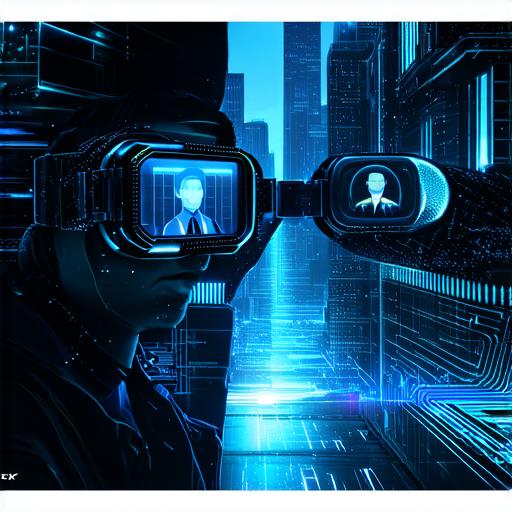Introduction: The Metaverse – A Brief History
The concept of a virtual world has been around for decades, with the first virtual reality system created in 1968 by Ivan Sutherland. However, it wasn’t until the advent of the internet that the metaverse began to take shape. In the early 2000s, the term “metaverse” was coined by author Neal Stephenson in his novel Snow Crash, which described a futuristic world where people could interact through avatars in a digital environment.
Key Features of the Metaverse: What Makes it Unique?
The metaverse is characterized by several key features that set it apart from other virtual worlds. These include:
- Decentralization: Unlike traditional virtual worlds, which are often controlled by a central authority, the metaverse is decentralized and operates on a peer-to-peer network. This means that users have more control over their experiences and can create and customize their own content without relying on a centralized authority.
- Immersive experiences: The metaverse offers immersive experiences that transport users into a digital world where they can interact with others in real-time. These experiences can range from gaming and entertainment to socializing and educational purposes.
- Interoperability: The metaverse is designed to be interoperable, meaning that users can access different virtual worlds and platforms using the same avatar or character. This allows for a seamless and integrated experience across multiple platforms.
- User-generated content: The metaverse encourages user-generated content, which means that users can create their own experiences, games, and social spaces within the digital world. This fosters creativity and innovation and allows for a more diverse range of experiences.
Potential Applications of the Metaverse: Beyond Gaming and Entertainment
While gaming and entertainment are certainly popular applications of the metaverse, there are many other potential uses for this technology. These include:

- Education and training: The metaverse can be used to create immersive learning experiences that allow students to interact with virtual environments and objects in a safe and controlled manner. This can be particularly useful for subjects such as science, engineering, and medicine, where hands-on experience is essential.
- Collaboration and communication: The metaverse offers a unique space for people to collaborate and communicate with each other in real-time, regardless of their physical location. This can be particularly useful for remote teams or businesses that operate across different time zones.
- Health and wellness: The metaverse can be used to create virtual environments that promote health and wellness, such as virtual fitness classes or meditation spaces. This can be especially helpful for people who live in areas with limited access to gyms or other fitness facilities.
- Mental health support: Virtual reality has been shown to be an effective tool for treating mental health conditions such as anxiety and depression. The metaverse could be used to create safe and controlled virtual environments that provide mental health support and resources.
Summary: The Future of the Metaverse is Bright
The metaverse is a rapidly evolving technology that offers endless possibilities for exploration, socializing, and entertainment. While there are still many challenges to overcome, such as privacy concerns and accessibility issues, the potential benefits of the metaverse are significant. As the technology continues to advance and gain traction, we can expect to see even more innovative applications and uses for the metaverse in the future.
FAQs
What is the difference between the metaverse and virtual reality?
The metaverse is a broader concept that encompasses multiple virtual worlds and platforms, while virtual reality refers to a specific type of immersive experience that can be accessed through a headset or other device. The metaverse offers a more integrated and interoperable experience across multiple platforms.
Is the metaverse only for gamers?
No, the metaverse is not just for gamers. It has many potential applications beyond gaming and entertainment, including education, collaboration, health and wellness, and mental health support.
What are the privacy concerns associated with the metaverse?
There are certainly privacy concerns associated with the metaverse, particularly around data collection and sharing. However, as the technology continues to evolve, there will likely be advances in privacy and security measures to address these concerns.
How can I access the metaverse?
There are many different ways to access the metaverse, depending on the platform or application you are using. Some platforms require a specific device or software, while others can be accessed through a web browser. It’s important to research the specific requirements for the platform or application you are interested in.
